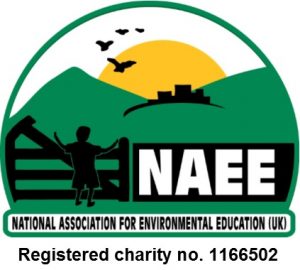 The Bristol Natural History Consortium’s 2018 Festival of Nature in Bristol and Bath starts on June 2nd with a week-long programme of activity sandwiched between free family festival events at Bath’s Green Park station. The full festival programme is here. While you’re browsing, why not look at the Bioblitz and Communicate programmes as well
The Bristol Natural History Consortium’s 2018 Festival of Nature in Bristol and Bath starts on June 2nd with a week-long programme of activity sandwiched between free family festival events at Bath’s Green Park station. The full festival programme is here. While you’re browsing, why not look at the Bioblitz and Communicate programmes as well
Bristol-based Arkive is 15 years old and is “thrilled to be able to celebrate and share the incredible diversity of life on Earth. However our planet is currently under a crisis, our planet’s ecosystems are under threat like never before, and the world is watching as more and more species fall victim to habitat loss or wildlife crime. It’s easy to get lost in the science, but it does not lessen the urgency needed in combating these extinctions.” 15 species have become extinct (according to the IUCN Red List of Threatened Species) over the 15 years Arkive has been running.
WRAP, with the support of the Ellen MacArthur Foundation, has launched The UK Plastics Pact which brings together businesses, governments, innovators, NGOs, and citizens to rally behind ambitious targets to eliminate unnecessary single-use plastic packaging and redesign all plastic packaging to be reusable, recyclable, or compostable. The New Plastics Economy aims to move away from the current ‘take, make, dispose’ approach to one based on circular economy principles. The vision for such a system is that plastics are kept in the economy and out of the environment
The University of Derby’s annual Nature Connections conference takes place on 20 June and the draft programme is now available: here. The conference is being supported by Natural England’s Strategic Research Network. The themes of nature, well-being, connection and beauty are represented by this year’s keynote speakers
- Cindy McPherson Frantz – Prof. of Psychology & Environmental Studies, Oberlin College & Conservatory, USA, leading researcher into the construct of nature connection.
- Howard Davies – Chief Executive – National Association for Areas of Outstanding Natural Beauty (AONBs)
- Gregor Henderson – National Lead, Wellbeing and Mental Health, Public Health England
Details and booking are available here.
St George’s House, Windsor held two consultations on the sustainable development goals [SDGs] a few months ago. Click here to read about them – and click here to read the report on the second consultation – on how higher and further education are dealing with Goal-related issues.
The British Red Cross has produced a new resource for Refugee Week [18-24 June]. The new resource for 7–14 year-olds helps develop understanding of what might cause someone to leave their home. Through real-life case studies, films and creative writing, learners will increase empathy towards refugees and learn about shared interests, such as music. Session plans can be used throughout the year to help learners increase their knowledge and build their understanding of what life can be like for refugees and asylum seekers. Activities are differentiated for primary and secondary learners and include discussion questions, a walking debate, creative activities and video case studies. Key facts and terms are included for educators, along with guidance of how to manage discussions sensitively
DERC has published a new research report by Vikki Penury. It examines research exploring the connections between the use of global data in primary mathematics lessons (as a way of engaging and inspiring teachers and pupils), and raising levels of participation from more reluctant mathematicians. The study explores teacher perspectives, and the opportunities for connecting learning across the curriculum. It assesses the current levels of desire and confidence of teachers in using global data in lessons – whether they feel that global data provides a real, relevant and purposeful context for learning – as well as the potential to motivate and inspire teachers. The study employed qualitative data collection methods with teachers and pupils across six schools.
World Environment Day [WED] is on June 5th June at the end of European Sustainable Development Week (30th May – 5th June). WED is the UN’s most important day for encouraging worldwide awareness and action for the protection of our environment. The global theme and host for World Environment Day changes each year to highlight a range of environmental matters. For ideas and inspiration, here’s a link to the Society for the Environment website where you’ll find toolkits and resources from.
The ever interesting Science Geek begins his latest post like this: “In his 1988 book ‘A Brief History of Time’ the British theoretical physicist Stephen Hawkins (1942-2018) stated:
‘The laws of science, as we know them at present, contain many fundamental numbers, like the size of the electric charge of the electron and the ratio of the masses of the proton and the electron. … The remarkable fact is that the values of these numbers seem to have been very finely adjusted to make possible the development of life.’
In this post I will talk about the view that the laws of physics, and the properties of the Universe as a whole, are somehow finely tuned to allow our existence. The term ‘anthropic principle’ was coined in 1973 by the Australian physicist Brandon Carter (1942-) to describe this viewpoint. …”
